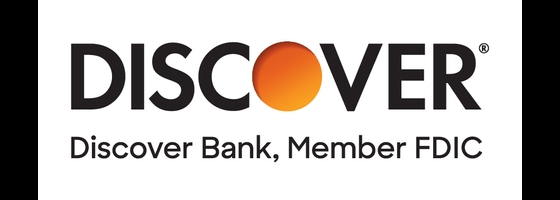- You can borrow funds without the need for collateral.
- They generally offer the security of a fixed interest rate and term.
- Many lenders provide a convenient online borrowing option.
Best Personal Loans for Good Credit in February 2025

Our evaluations and opinions are not influenced by our advertising relationships, but we may earn a commission from our partners’ links. This content is created by TIME Stamped, under TIME’s direction and produced in accordance with TIME’s editorial guidelines and overseen by TIME’s editorial staff. Learn more about it.
Personal loans can allow you to consolidate debt, make improvements to your home, and more. If you’re looking for one and have good credit, you may qualify for the best interest rates and terms available. Here’s a closer look at the best personal loans for good credit.
| Lender | Loan amount | APR | Min. credit score |
|---|---|---|---|
LightStream | $5,000 to $100,000 | 6.94% - 25.29% | Good |
PenFed | Up to $50,000 | 8.99% to 17.99% | 580 |
Sofi | $5,000 to $100,000 | 8.99% to 29.99% | N/A |
Discover | $2,500 to $40,000 | 7.99% to 24.99% | 660 |
Caribou | Up to $125,000 | 5.99% to 28.55% fixed | 620 |
LightStream offers personal loans up to $100,000 with competitive rates for borrowers with excellent credit. Even better, its Rate Beat Program offers 0.10% lower than any comparable personal loan rate for which you’ve been approved. This is important when borrowing a large amount, as getting the lowest possible interest rate can lead to significant savings.
LightStream does not charge any fees whatsoever on its loans; borrowers only pay interest. However, interest rates can be high if you don’t have good credit. If LightStream doesn’t approve you at its best rate, try shopping around to find a better offer.
PenFed Credit Union (short for “Pentagon Federal Credit Union”) is a nonprofit financial institution that offers more-favorable rates and fees to its members. While you must become a member to borrow from PenFed, anyone can join by opening a savings account and maintaining a minimum $5 balance.
PenFed’s interest rates are competitive for borrowers with good credit. You can borrow Up to $50,000 with terms of Up to 60 months. There are no prepayment penalties or origination fees, and you can check your rate instantly without impacting your credit score. Overall, it’s a solid offering that could be your lowest-cost option for a personal loan.
SoFi offers personal loans for $5,000 to $100,000 without origination, prepayment, or late fees. Terms range from two to seven years, and you can find your rate in about a minute without impacting your credit score. The strongest borrowers can secure reasonable interest rates. Funds can be made available the same day you’re approved.
SoFi’s personal loans get very personlized–it calls out options for weddings, loan consolidation, home improvements, travel and even fertility treatments.
Discover is an online bank that features a number of products and services, but it stands out for its low rates and fees on student loan refinancing. Qualifying applicants will find its interest rates to be extremely competitive, and there are no loan origination or late fees.
You can refinance federal and private student loans with Discover, but keep in mind that refinancing federal student loans with a private lender means giving up potentially valuable benefits, such as income-driven repayment plans and loan forgiveness. For refinancing existing private loans, Discover is a solid choice.
Caribou is an online lender with competitive auto loan rates for applicants with good to excellent credit. You can check your rate without impacting your credit score. If you have an existing loan, you can save money by refinancing with Caribou at a lower interest rate over the same payment term. However, if you extend the term, you could end up paying more interest in the long run.
The company supports loans for all passenger vehicles, including cars, trucks, and SUVs, but it doesn’t work with motorcycles or commercial vehicles. In addition to a review of your credit and financial stability, Caribou will require your vehicle information to approve and secure the loan.
When selecting the best personal loans for individuals with good credit, our team reviewed a long list of lenders with a primary focus on rates, fees, and payment terms. We also looked at the overall customer experience and the processes of applying for a personal loan and receiving funds.
When selecting a personal loan, you should first understand your creditworthiness and desired loan terms. Good credit opens the door to more-favorable loan terms, including lower interest rates and flexible repayment options.
Next, consider the loan's total cost, including the interest rate and any applicable fees. Look beyond the advertised annual percentage rate (APR) and examine the fine print for origination fees, prepayment penalties, and late fees. By comparing these costs across various lenders, you’ll end up with the best possible deal.
Personal loans are not always the best choice. Depending on your situation, you may want to consider the following alternatives:
Most personal loans are straightforward, especially if you have good credit. That said, it’s important that you understand how to make an educated borrowing decision.
Personal loan interest rates are based on several factors, including the target interest rate set by the Federal Reserve and lending market conditions. Keep in mind that interest rates are constantly changing, and lenders can update them at any time without notice.
If you have good credit, you’re not limited to a personal loan. For example, if you’re a homeowner, you could also consider a home equity loan or HELOC. Credit cards are another alternative to unsecured personal loans, but they will likely come with higher interest rates and long-term costs.
Personal loans for those with good credit can be either beneficial or detrimental depending on your financial management and needs. It's essential to shop around for the best rates and terms, as differences among lenders can significantly impact short-term affordability and long-term financial health. Making timely payments as agreed is crucial to avoid additional fees and interest and maintain your good credit standing.
A good credit score is generally considered to be between 670 and 739. Higher scores may qualify as very good or excellent.
Interest rates vary by lender and can change at any time. Shopping around can help you find the best interest rate for your financial situation.
Your interest rate’s deciding factors include your income, credit history, credit score, and credit obligations (known as your “debt-to-income ratio”). Every lender uses their own approval model, so your results may vary.
The information presented here is created by TIME Stamped and overseen by TIME editorial staff. To learn more, see our About Us page.








